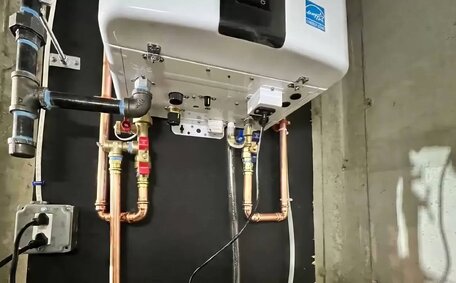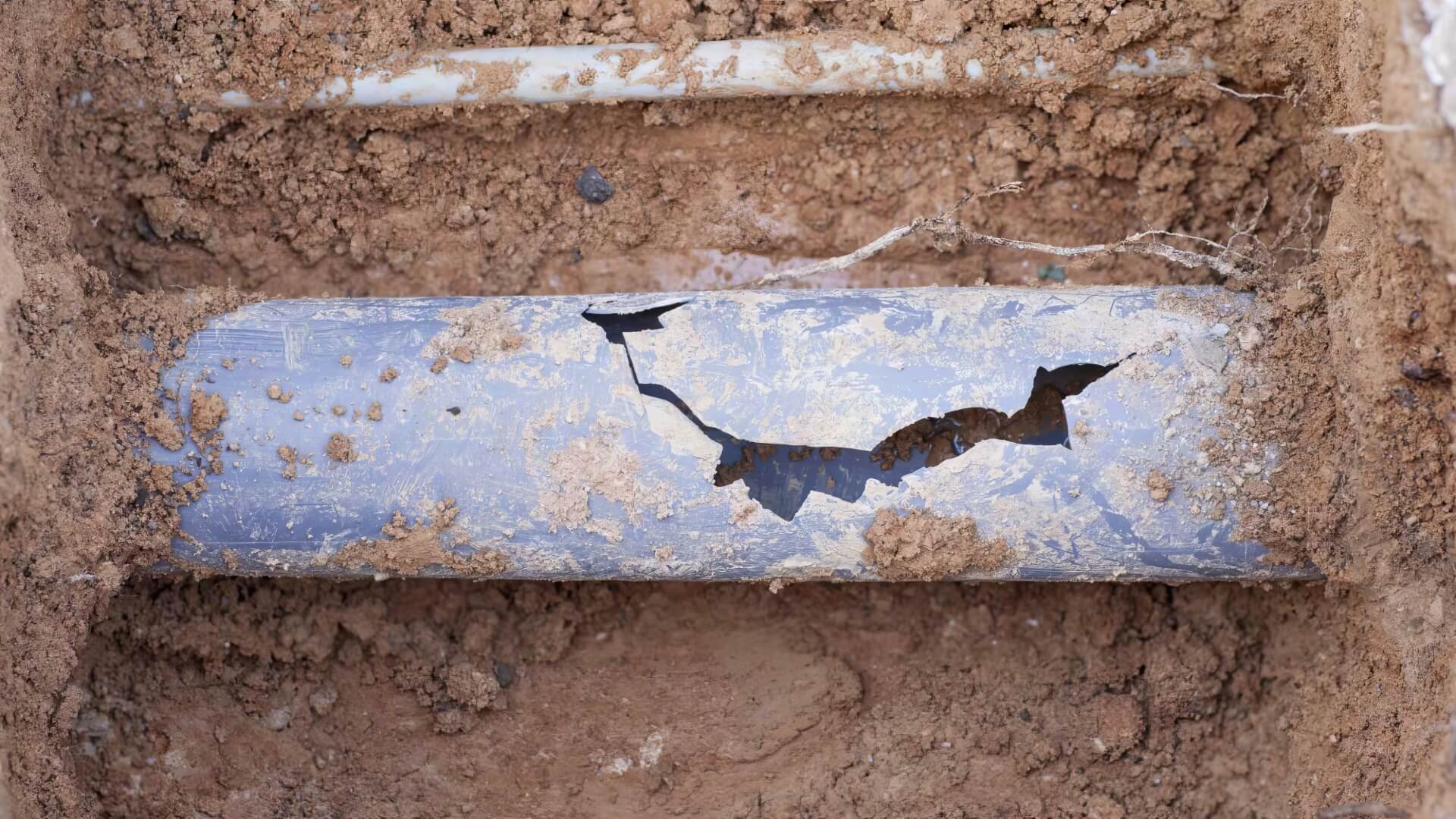Introduction to Gas Hot Water Systems
Many households prefer gas storage hot water systems due to their efficiency and cost-effectiveness. Located in Minchinbury, Sydney, Minchinbury Plumbing has extensive expertise with gas hot water systems for homes in the local area.
Gas hot water systems utilise natural gas or LPG for heating water. This often makes them more cost-effective than their electric counterparts. Instant or tankless systems heat your water on demand via a gas burner or heat exchanger.
Both storage and instantaneous models are engineered for durability.
If youre looking for the best hot water system, it’s important to assess various types, your usage, installation requirements, running costs and energy efficiency. The right size hot water system depends on your household’s specific needs. Getting professional advice is crucial when choosing the best hot water system that is appropriately sized and high-quality for your home.
Comparing Storage Tank and Continuous Flow Gas Systems
Gas hot water systems include storage tanks and continuous flow models. Tank system hot water storage units contain water in an insulated tank to ensure availability when needed. Size varies from small to large capacity tanks holding 80-400 litres. Continuous flow hot water systems heat water instantly, providing warmth without the wait time once depleted.
While these systems are generally more energy-efficient and come with the budget-friendly benefit of undisturbed supply during power outages, they are particularly well-suited for households with high hot water demand.
Continuous flow water heaters or ‘tankless’ systems instantly heat water as it’s needed, via a gas burner or heat exchanger. These compact, wall-mounted systems ensure you never run out hot water; they suit low to medium water usage households and mitigate cold water delays with space constraints.
Continuous flow systems ensure an uninterrupted hot water supply but with a limited flow rate. Operating costs are typically higher for continuous flow systems, which are the system most suited for certain household demands.
Solar-enhanced heat pump water heaters can achieve over 90% energy efficiency with advanced heat recovery and insulation. Although tankless systems quickly heat water on demand, gas solar heat technologies combined with storage tanks avoid standby losses, ensuring efficient use. Professional advice is critical to ensure the size your hot water system matches your household’s typical usage, which costs can greatly affect.
Key Factors When Selecting a Gas Hot Water System
There are key factors to consider when choosing a gas hot water system, ensuring that you select the best model for your household:
System Size
Carefully evaluate your household’s hot water needs. Do you need a small, medium or large system?
Consider daily habits, household size, peak usage times and potential changes in the future. A professional can assess your requirements and recommend an appropriate size hot water system for your needs.
Energy Efficiency
Opt for a gas-powered hot water system with the best energy star rating that fits your budget. A 5-6 star storage tank or heat pump system will provide excellent efficiency. Also consider heatpump hot water systems to leverage renewable energy and reduce greenhouse emissions.
Fuel Type
While natural gas is generally the cheaper option, electricity gas systems like LPG suit households not connected to heat pump hot water heating options. Consider how much the installation and ongoing operating costs will total over the system’s lifetime when choosing the energy source.
Additional Energy Saving Tips
- Insulate hot water pipes to retain heat.
- Install water-saving shower heads and tap aerators.
- Use a timer to restrict heating during low-use periods.
- Consider an electric water system to use off-peak power or solar PV-generated electricity.
Discuss options with a professional to select the most practical, efficient and best hot water system your home could have.
Storage Tank Capacity and Features
Gas storage tanks are available in capacities ranging from 50L to 400L.
Notable features to consider are the insulation layers to maintain heat and safety measures like temperature/pressure relief valves. Many gas solar hot water systems have enamel-lined steel cylinders for corrosion resistance. Look for energy saver features like buttons to adjust water temperature as desired.
Storage systems recover hot water faster than other gas types. Their superior recovery rate of 30-45 litres per hour suits high demand and larger households.
Energy Efficiency Ratings
When shopping for a gas hot water system, one of the most important considerations is the energy efficiency star rating. Systems are rated on a scale of 1 to 10 stars, indicating how energy efficient they are.
Greater star ratings mean better operational efficiency and reduced running costs, thanks to higher thermal performance. They also indicate lower greenhouse gas emissions. Aim for a minimum 5-6 star energy rating when choosing a gas system.
A higher energy star rating aligns with energy efficiency initiatives and government incentives, future-proofing your investment.
With storage tanks able to achieve over 90% thermal efficiency through effective insulation and heat recovery, they optimise your energy usage, both storage and instantaneous gas systems can score competitively on the star rating scale.
Comparing the star ratings of products helps ensure that your system meets your household’s efficiency and environmental objectives.
Installation and Operating Cost Considerations
Installing a new electric storage hot water system incurs upfront costs for purchase, delivery and professional installation. Basic gas storage water heaters start at approximately $1,500, while prices for large continuous flow systems can exceed $3,500.
However, electric hot water systems may be more expensive upfront, with the installation costing $2,000 to $5,000. However, their higher operating efficiency can result in significant long-term savings. Heat pumps can cut energy bills by up to 66%, solar by 50-85%.
Although initially more costly, investing in a more efficient system can lead to substantial savings. The cost difference can help homeowners save money, often translating to $100+ annual savings, which adds up exponentially over the equipment’s lifespan.
Government rebates of up to $1,200 are available to help offset the cost of installing high-efficiency hot water systems.
Our expertise can help your household make a good idea into a reality by balancing upfront costs against projected energy savings when budgeting for new hot water heaters installation.
Maintenance and Safety
Regular maintenance is key to ensuring the safety and cost-efficiency of your water heating system in the long term. Yearly servicing by a licensed professional can detect issues such as gas leaks, which is vital for public safety.
Technicians inspect the water temperature and pressure relief valve, crucial for mitigating excess heat or pressure. They also check burner operation, clear out hot water sediment from the tank, and assess insulation condition.
In hot water tank systems, anode rods, which prevent corrosion and extend tank life, should be replaced every five years. Flushing the hot water heater may also be recommended to prevent scale buildup from hard water.
It is recommended to service gas storage systems every one to three years and tankless models every two to five years; regular maintenance is vital for the durability of your family’s hot water supply.
Environmental Impact
When selecting a gas hot water system, it’s important to consider the environmental impact. While gas systems are generally more efficient than electric, they still produce greenhouse gas emissions from burning fossil fuels.
Eco-friendlier options, like solar-enhanced and pump water heaters, are available to boost sustainability. Solar heat pump systems use solar thermal panels to pre-heat water, reducing gas usage by up to 50-70%. Heat pump water heaters use electricity to extract heat from the air and can lower emissions by up to 66% compared to gas storage heaters.
Heat pumps are ideal for running on solar PV power. This strategy not only reduces your energy bill but also supports the transition towards more sustainable living.
Opting for greener technology like solar-boosted or heat pump systems demonstrates environmental responsibility.
Professional Installation and Advice
It is essential for skilled professionals to install storage hot water systems. At Minchinbury Plumbing, our licenced technicians have extensive training and experience with gas hot water systems.
We handle all permits and paperwork, ensuring your system complies with regulations. Improper installation risks serious issues like gas leaks or electric shocks. Our experts ensure safe, compliant installation so you have peace of mind.
Beyond installation, we also provide tailored advice on selecting the optimal system for your household’s needs. Considering factors like your budget, available space, energy usage and the implementation of a solar hot water system. With full understanding of the latest systems and technologies, we recommend the most practical, efficient and cost-effective options for the water your household uses.
Rather than risking faulty DIY installation, trust qualified professionals like Minchinbury Plumbing to install your gas hot water system safely. And access expert guidance through every step of the process.
Contact Our Team Today
We hope this guide has given insight into key considerations in selecting the right hot water system for your Minchinbury residence.
The team at Minchinbury Plumbing have over 10 years experience installing and maintaining gas hot water systems in the local area. Whether you’re interested in a storage tank or continuous flow system, upgrading existing equipment or fitting a new hot water system, we’re ready to help.
Our licenced technicians can:
- Provide expert advice on selecting the right type, fuel, capacity and features for your household.
- Handle all permits and paperwork.
- Install your best gas hot water system safely and compliantly.
- Service and maintain it ongoing to optimise efficiency.
To discuss your needs and ensure you choose the most practical, cost-effective gas hot water system for your home, call Minchinbury Plumbing on 1300 349 338 or email us today. Friendly, knowledgeable service guaranteed.






